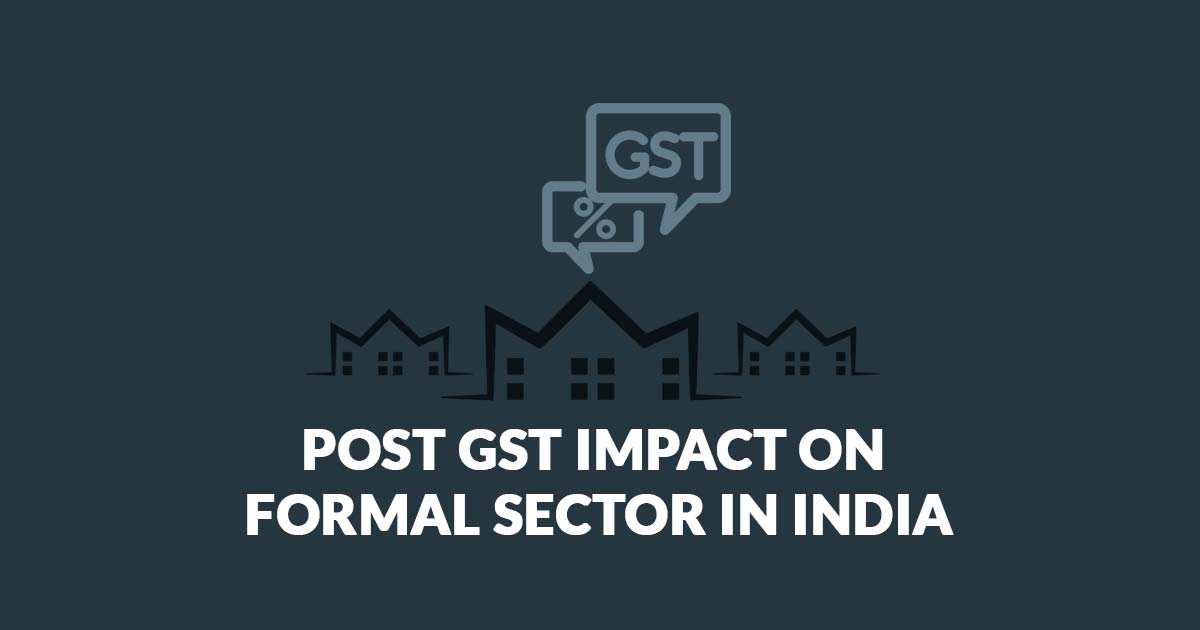
Let us check all the changes which had been seen in the formal sector after the introduction of Goods and services tax in India. It includes all the revisions and compliance which are followed in the formal sector according to the indirect tax laws:
- A firm which produces a particular good or service must pay tax on the product’s value and if there is any tax paid on its inputs, are deducted.
- From the tax authorities, firms can utilize ITCs only if they show that their distributor of inputs paid Goods and Services Tax (GST) on those inputs.
- All the firms which are in the value chain must maintain the records of their tax payments because the firms increase the value chain and will request these records to utilize their personal ITCs.
- The self-policing feature of Goods and Services Tax (GST) is expected to increase government revenues and raise compliance.
- Informal sector firms are out of tax net but if these are distributors of inputs to formal sector firms then they will have to be forcibly registered with the tax authorities and receive their GSTIN number. Or else, the formal sector firms which obtain their products as inputs will change to formal sector suppliers as they can use the GSTIN number of the supplier to utilize ITCs.
- The Goods and Services Tax (GST) is also supposed to formalize the economy, as many, more hitherto informal firms register with the tax authorities.
The effects of the introduction of VAT (Value Added Tax) on Brazil was studied by two American economists-de Paula and Scheinkman and found that the Brazilian formal sector initially got reduced because the costs of compliance were so high. Then later the formal sector was expanded when the tax reforms reversed this trend.
Read Also: Difference Explained: GST India vs GST in Other Countries
Did something like this ever happen in India? Due to limited data are given, it is too early to say this. There has been a 50% growth in the indirect taxpayer base. But there is a clear informal evidence to advise that firms are avoiding the payment of GST. Thus, the tax net is disappearing due to the value chains. Therefore, steps are being taken to minimize the costs of compliance and are encouraging firms to pay the GST while the efforts of different stakeholders to improve the tax is promising.